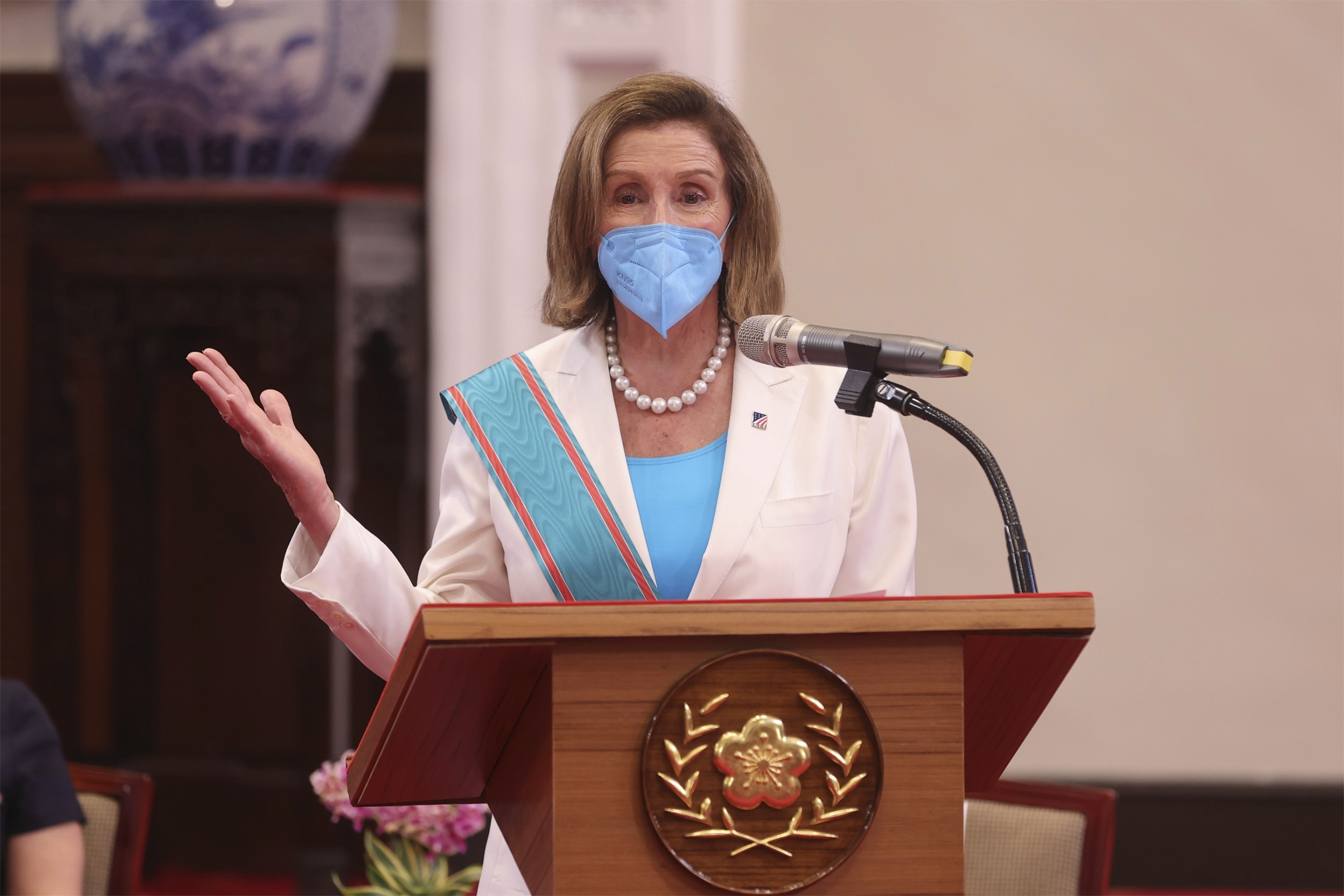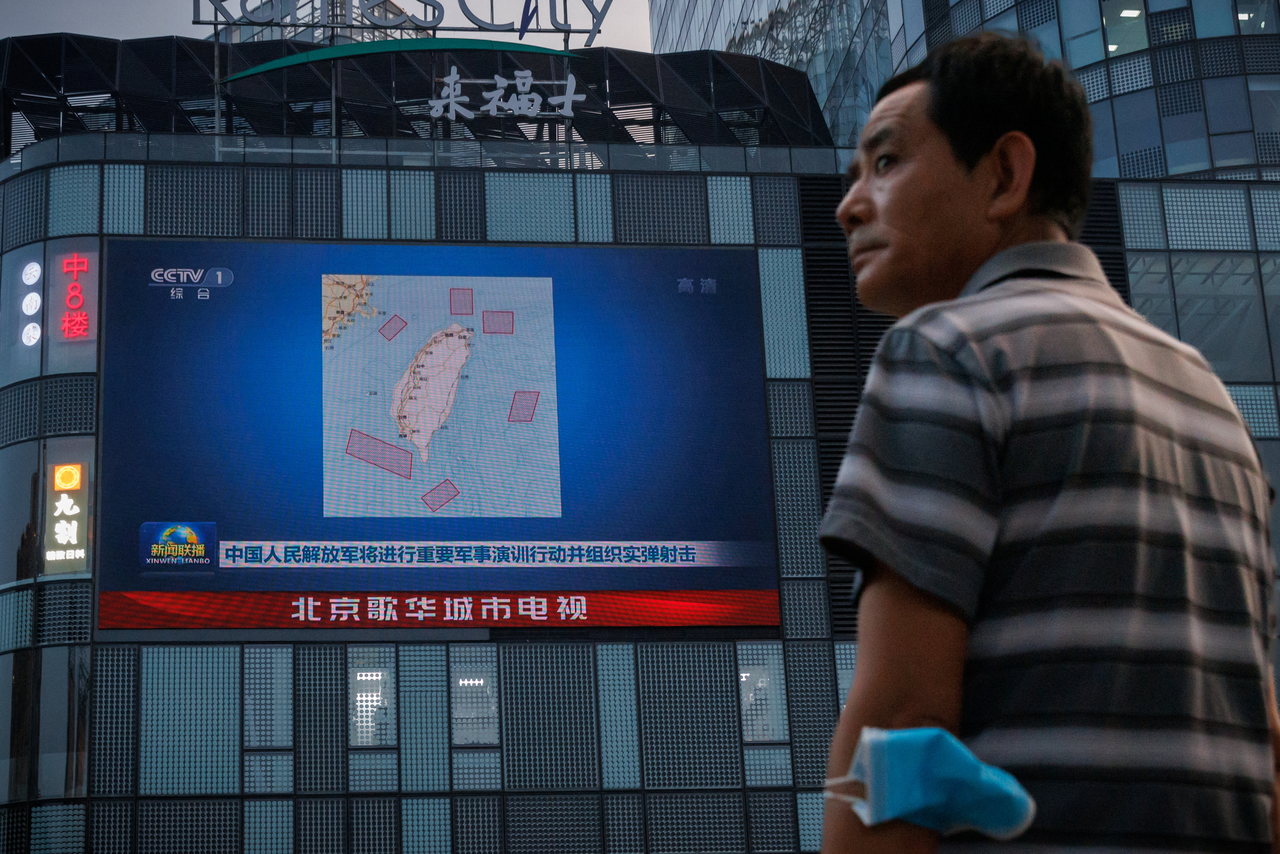What is the Present and Future of Poland's Cooperation with Taiwan?
In recent years, Poland has been strengthening its relations with Taiwan. These activities are in line with the deepening cooperation between Taiwan and the EU and some of its Member States, mainly from Central Europe. The rationale is the growing international importance of the island, including its role in global supply chains and international security. Although the intensification of bilateral cooperation is conducted cautiously, it may result in increased tensions in Poland-China relations.
.jpg) Handout/ Taiwan Cdc / Zuma Press / Forum
Handout/ Taiwan Cdc / Zuma Press / Forum
Poland does not maintain diplomatic relations with Taiwan. The first economic-related contacts were established in the late 1980s and early 1990s when democratisation processes began both in Taiwan and Poland. In 1992, a Taiwanese representative office—the Taipei Economic and Cultural Office—opened in Warsaw, followed in 1995 by a Polish representative office—the Warsaw Trade Office—began operations in Taipei. Poland-Taiwan cooperation has been deepening for several years. This process coincides with Taiwan’s growing international status, particularly since the Democratic Progressive Party (described as pro-independence) came to power in 2016 and the accompanying increasing pressure from China, which it is pursuing more clearly than just a few years ago to “reunify” Taiwan with the PRC.
“One China” Policy
Poland’s approach to Taiwan is based on the “One China” policy. It means that Poland recognises the PRC as the sole legal representative of China and notes that the authorities in Beijing claim sovereignty over Taiwan, which is not the same as recognising the island as part of China. This understanding is in line with the EU’s approach. Although the EU has not specified what exactly its “One China” policy consists of, it is clear from EU documents and representatives’ statements that it does not allow diplomatic relations with Taiwan (non-recognition clause).
That are statements in documents and remarks by Polish officials, especially from a few or more years ago, that Taiwan is a part of China. This equated the Polish “policy” with the “One China principle”, the latter being a term used by the PRC. Currently, the Polish authorities are trying to avoid making statements about Taiwan’s status. This is the result of changes related to the island’s growing economic and political importance, the deepening of EU and, above all, U.S.-Taiwan relations due to the U.S.-China rivalry, and the PRC’s broadening of the meaning of the “One China principle”. While it has always meant that, in China’s view, Taiwan is part of the PRC, in recent years China has argued that international institutions have settled the issue. It claims, for example, that UN General Assembly Resolution 2758 of 1971, which concerned the transfer to the PRC of the seat previously occupied by the Republic of China in the UN and its specialised organisations, it also defines Taiwan’s status as part of China. However, the resolution does not refer to Taiwan’s status.
Poland’s policy towards Taiwan is conducted in a low-profile manner. Mutual contacts remain generally out of the public sphere and situations are avoided that might raise China’s ire (such as the display of Taiwan’s flag). Under its “One China” policy, Poland reserves the right to maintain friendly economic and social relations with Taiwan. It also advocates the peaceful development of relations between Taiwan and China.
Institutional and Crisis Cooperation
The most important bilateral contact is economic consultations at the level of undersecretaries of state. As a rule, these are held once a year, alternating between Poland and Taiwan. In 2022, Secretary of State and Government Plenipotentiary for Foreign Investment in the Ministry of Development and Technology Grzegorz Piechowiak took part in the consultations in Taiwan. The latest, 11th meeting was held in Warsaw in June this year with the participation of Taiwan’s Deputy Minister of Economy Chen Chern-Chyi.
Parliamentarian contacts are also important. The Polish parliament of the current term has a Poland-Taiwan Parliamentary Group with 92 members. In April 2022, a similar group was established in the Taiwanese Legislative Yuan. Following the lifting of pandemic restrictions in Taiwan, these contacts intensified. Delegations of Polish parliamentarians visited Taiwan in December 2022 and June this year.
The deepening of cooperation was evidenced by the signing of a double-taxation avoidance agreement in 2016, after more than 20 years of negotiations. In 2018, the Warsaw Trade Office was renamed the Polish Office in Taipei and a PAIH Foreign Trade Office was opened. In June 2019, Poland signed an agreement with Taiwan to strengthen cooperation on combating crime and protecting human rights. Poland also supports Taiwan’s efforts to participate in the World Health Organisation, which has been blocked by China since 2016.
Poland and Taiwan also strengthened cooperation in emergency situations. During the COVID-19 pandemic, Taiwan donated medical protective supplies to Poland, which later and in turn donated 400,000 doses of vaccines to Taiwan. The Polish authorities also helped Taiwanese students return home during the emergency by launching direct Warsaw-Taipei charter flights. Following the Russian aggression against Ukraine and Chinese support for Russia, Taiwan, which is facing increasingly aggressive actions by the PRC, is monitoring the situation in Ukraine, providing it with financial and humanitarian aid (mainly through Poland) and analysing the Ukrainian experience in fighting the aggressor. Both Poland and Taiwan take the view that supporting Ukraine reduces the likelihood of China escalating tensions that could lead to a crisis in the Taiwan Strait. Prime Minister Morawiecki, during a visit to the U.S. in April this year, said that a possible failure of Ukraine could encourage China to attack Taiwan.
Economic Cooperation
According to the Polish data, trade between Poland and Taiwan is characterised by a growing deficit on the Polish side. In 2022, the value of Polish exports amounted to PLN 1.1 billion and imports to nearly PLN 13 billion. According to EU data, in 2021, the share of Polish trade with Taiwan accounted for 2.4% of EU trade with the island. Poland exports to Taiwan mainly machinery and electronics (about 18% each), as well as food and other products of animal and plant origin. From Taiwan, Poland mainly imports LCD panels, semiconductors and other electronic parts (about 60% of imports).
There is still little investment cooperation. According to the National Bank of Poland, the value of Taiwanese investments in Poland in 2021 was PLN 315 million. According to the Taiwanese side, they generate about 3,000 jobs in Poland. In contrast, Polish disinvestment in Taiwan has been recorded for several years. This is opposite the trend in the EU, which is the largest foreign investor on the island. In 2020, cumulative investment from the EU (mainly from the Netherlands, Germany, and Denmark) accounted for nearly 26% of all foreign investment there.
Opportunities for high-tech cooperation are growing. This is, among other things, a result of the pandemic, including the disruption of supply chains which highlighted Taiwan’s importance in the high-tech sector. Taiwan is also beginning to recognise the potential of Central Europe (CE). This is fostered by the Taiwan-friendly policies of some countries in the region, such as Lithuania and Czechia. In January 2022, Taiwan announced the creation of the Central and Eastern Europe Investment Fund with capital of $200 million to support companies in strategic sectors such as semiconductors, fintech, laser optics, space, and electric vehicles (EVs). In September 2022, Poland and Taiwan signed an agreement on cooperation in semiconductors and the establishment of a Polish-Taiwanese working group on chips. An investment by U.S.-based Intel planned near Wrocław may prompt Taiwan to take greater interest in Poland. In June this year, during economic consultations, the parties signed agreements on cooperation in the fields of EVs and hydrogen power. A Taiwanese air carrier is considering launching a direct Taipei-Warsaw flight in 2025 (Taipei-Prague flights were launched in July this year).
Conclusions
The deepening of Polish-Taiwanese relations is part of the intensification of the EU’s relations with Taiwan and the sharpening of the EU’s China policy. Poland is also recalibrating its policy towards the PRC. This process has accelerated due to China’s favourable attitude towards Russia after its aggression against Ukraine. At the same time, as a frontline state involved in helping Ukraine and one also threatened by Russia, Poland wants to maintain channels of communication to share its assessment of the security situation in the CEE with China. Among other things, this is why it is strengthening cooperation with Taiwan in a cautious manner. Closer relations with the island and, at the same time, maintaining the dialogue with China fit Poland’s approach into the EU’s efforts to discourage China from escalating tensions in its neighbourhood. Despite this, however, Poland can expect an increase in tensions in its relations with the PRC.
The prospect of developing economic cooperation with Taiwan, especially in the high-tech sector, offers an opportunity to modernise the Polish economy. The location of Taiwanese investments in Poland and the CEE (Lithuanian high-tech companies have already started cooperation with Taiwanese partners), among others, would allow the region to be more firmly embedded in high-tech supply chains and would serve to rebuild European industry.
Closer cooperation with Taiwan could also strengthen transatlantic relations. Both the U.S. and the EU see Taiwan as a trusted partner in diversifying their relations in strategic sectors (derisking) and preventing a possible crisis in the Taiwan Strait, the negative effects of which will also be felt in Europe.





